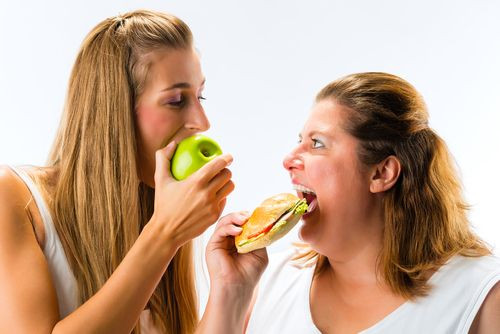Political Correctness May Lead To Holiday Weight Gain: To Avoid Making Poor Food Choices, Choose What You Wish

Could it be that most people mirror the people they think of as stigmatized in order to avoid offending them? That’s exactly what researchers from Duke University’s Fuqua School of Business claim in their new study, which appears in the journal Organizational Behavior and Human Decision Processes.
“Although prior research shows that people often want to avoid being associated with dissociative groups, such as stigmatized groups, we demonstrate that people make the same choices for self and stigmatized others to minimize offense,” the authors wrote.
How to Avoid Offense
To understand how people choose between healthy and unhealthy food options when they are picking for both themselves and another person, a group of marketing students conducted six separate experiments. In one of the studies, participants were asked to choose a snack option of either wheat crackers or chocolate chip cookies for both themselves and a person they had just met. In some situations, the newly-introduced woman appeared as her normal size (dress size 0 or 2). In other instances, the woman was wearing a body suit that appeared to increase her weight (dress size 16).
So how did the participants respond? Most (nearly 60 percent) chose the same snack for themselves and the newly-introduced woman when she appeared overweight, but when she appeared as her normal size, they only chose the same snack 30 percent of the time. Their choice in snacks did not favor one or another; participants chose cookies half the time and wheat crackers the other half.
"What the results show is that people pick the same snack to avoid offending someone they perceive as overweight,” Management Professor Grainne Fitzsimons, who also co-authored the study, stated in a press release. “This means that people might pick unhealthier options for themselves and others during the holidays if they think not doing so could hurt someone's feelings.” Although the wrong choice of food may not matter in the short term, it's the long term results that play a significant part in matters of health.
Confronting the Scale
It is commonly believed that the so-called "average" American gains five pounds or more over the holiday season, but the truth of the matter is far less dramatic. A study conducted by researchers from the National Institutes of Health found that on average, American adults tend to gain just one pound during the holiday season. The problem is that this slight gain is not lost come spring. For this reason, the researchers believe this is what contributes to the encroaching body weight that occurs for many during adulthood.
In the current study, participants explained their choice of snack by saying it would be offensive either to give an overweight person healthy food and then take unhealthy food for themselves or, conversely, to give an overweight person unhealthy food and then take healthy food for themselves. "This suggests that if you are heading back to the buffet to cut a piece of pumpkin pie for your overweight uncle, you might also cut a larger piece than normal for yourself, so you don't hurt his feelings," Peggy Liu, a marketing doctoral student and lead author, stated in the press release.
The research has implications beyond the buffet line. "Counter to common marketing wisdom, a single product that adequately meets the needs of multiple family members without offending any may dominate individual items that perfectly meet the needs of each family member but raise the risk of offense," Liu suggested.
Sources: Liu P, Campbell T, Fitzsimons GM, Fitzsimons GJ. Matching Choices to Avoid Offending Stigmatized Group Members. Organizational Behavior and Human Decision Processes. 2013.
Yanovski JA, Yanovski SZ, Sovik KN, et al. A prospective study of holiday weight gain. New England Journal of Medicine. 2000.
Published by Medicaldaily.com



























